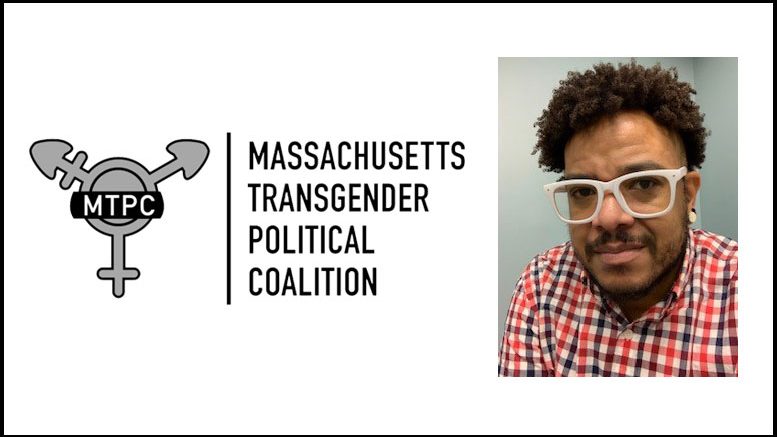This Op-Ed highlights many of the struggles that trans and nonbinary and focuses on the message: “It’s Ok To Be Concerned: Call Your Doctor Anyway”
By: Tre’Andre Valentine*—
This week, hospitals and health care centers will begin scheduling non-emergency procedures and appointments that were postponed to allow the healthcare system to respond to the COVID-19 pandemic.
For many transgender and nonbinary people, the cancellation of long-planned gender-affirming procedures or appointments has been devastating. Our communities experience higher rates of anxiety and depression than our cisgender peers, and that was before this pandemic. We are also five times more likely to be living with HIV compared with the general population. Forgoing gender-affirming care and routine appointments over the last two months may have exacerbated any anxiety or depression we were dealing with. And our chronic health conditions may have worsened.
So now is the time to reschedule those visits. You may still be worried about exposing yourself to the coronavirus by visiting a hospital or health care center. You’re not alone. Fear of exposure has become so widespread that Gov. Charlie Baker and the leaders of three hospitals in the Greater Boston area spent time during Baker’s April 23 press briefing reassuring the public that it was safe to seek care for urgent conditions.
“We’re decontaminating our surfaces, we’re practicing social distancing, we’re using masks and we’re doing everything we can to keep you safe,” Dr. Michael Apkon, president and CEO of Tufts Medical Center and Floating Hospital for Children. “If you are ill,” please call your physician to seek care.”
All three health care leaders said that urgent care visits had dropped by over 50 percent and gave disturbing examples of the lengths to which people were avoiding treatment for emergency conditions: a child with a ruptured appendix after toughing out several days of abdominal pain, patients with diabetes needing limb amputation because of untreated leg ulcers, stroke victims not coming in until they were long past the point at which physical damage could be mitigated, and increased cases of advanced cardiac and gastrointestinal disease.
We know that trans adults are more likely to rate our health as poor or fair compared with the general population and more than one in five of us has at least one or more chronic conditions like diabetes, arthritis, or asthma.
As trans people, we must always be vigilant about our mental and physical health. But it’s especially important now, when we know that a compromised immune system and pre-existing health conditions may put us at greater risk of developing serious complications from COVID-19 infection.
So, if you’ve been putting it off, now is the time to call your doctor. We get that it’s sometimes easier said than done. Even in the best of times, many trans and nonbinary people avoid medical care altogether due to stigma and fear of discrimination. But know this: discrimination against transgender people in the MA health care system is unlawful. You have rights. If you have concerns about any mistreatment that you experience during this public health emergency, please reach out to us at the Massachusetts Transgender Political Coalition (MTPC) or contact GLADAnswers.org, the legal information service at GLBTQ Legal Advocates and Defenders (GLAD).
But don’t put off getting the care you need. In the meantime, the best way to ensure your continued health during the pandemic is to practice safety measures and good hygiene. If you must go out, per the governor’s order you are required to wear a face mask. Keep a safe distance from others—at least six feet. Wash your hands thoroughly (scrub for at least 20 seconds) or use hand sanitizer if you have been in public and touched an item or surface that is frequently touched by others—door handles, tables, gas pumps, shopping carts, touchscreens, etc. Keep your hands away from your face, as germs enter our bodies through our mouth, nose, and eyes.
And stay connected. It’s a difficult and scary time for everyone. We need each other. Keep in contact with loved ones and support networks via telephone, e-mail, text, Zoom, etc. No matter your age, if you are feeling isolated there are options for you to seek and receive virtual support from within the LGBTQ and trans and nonbinary communities.
Fenway Health and the National Center for Transgender Equality (NCTE) are each maintaining helpful lists of information and resources to help you stay safe(r) and healthy during the pandemic. Here are some resources specifically for our elders,
Rainbow Elders, Rainbow Seniors of Berkshire County, LGBT National Senior Hotline (888-234-7423), and SAGE National LGBT Elder Hotline (877-360-5428).
Check out the MA Trans Health Coalition’s Guiding Principles for Gender-Affirming Care during COVID-19 and the Validation Station, a new free service that sends validating and affirming daily text messages to transgender and nonbinary people during this crisis.
*Tre’Andre Valentine is the Executive Director of the Massachusetts Transgender Political Coalition.







